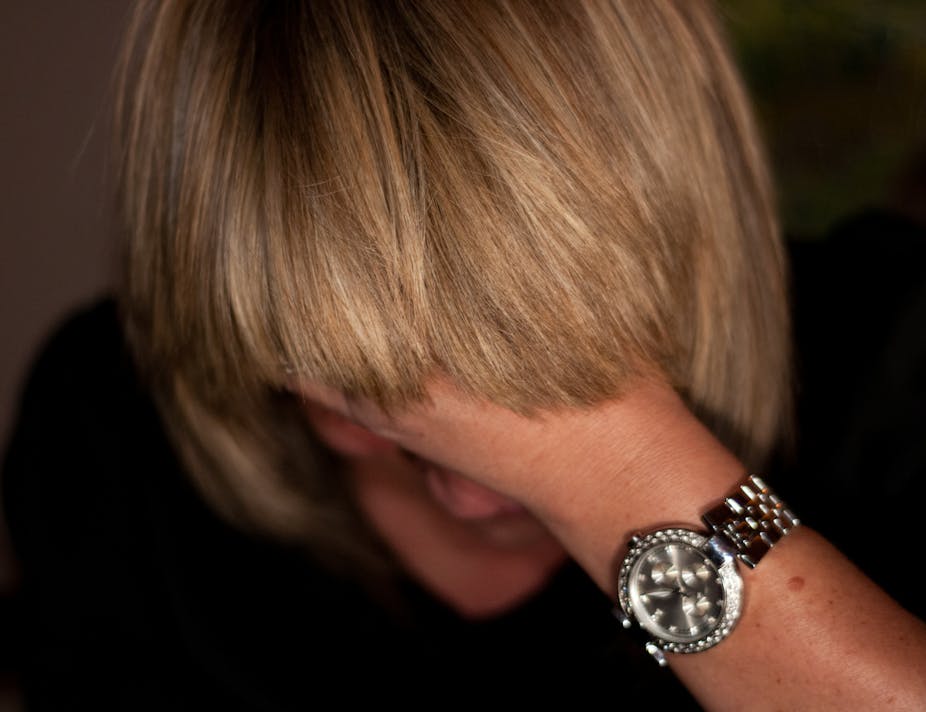The emergency contraceptive pill (morning-after pill) contains a hormone called levonorgestrel and can be bought without a prescription. It’s used to prevent pregnancy after unprotected sex, but many women are uncomfortable with their interaction with pharmacists when buying this drug.
The morning-after pill is licensed by the Therapeutic Goods Administration (TGA) to be used within three days of unprotected sex, but there’s evidence that it’s effective for up to four days. Still, the sooner it is taken, the more effective it is.
It’s available as a tablet and is classified as “Pharmacist Only” medicine. The law requires pharmacists to supply such medicines only for a therapeutic need, and to personally deliver or supervise their delivery, and personally give directions for their use. To establish a therapeutic need, a pharmacist must ask the customer questions about her medical problem, medical history and the medications she’s taking.
Our recent study of emergency contraceptive pill recommendations by pharmacists across Australia found that most of them used the Pharmaceutical Society of Australia’s (PSA) written protocol to guide their supply. Pharmacists tended to follow the protocol rigidly, rather than using their discretion.
As recommended, many provided information to women about the emergency contraception in a part of the pharmacy where confidentiality could be assured. But 62% of the women we spoke to expressed concern about the lack of privacy. What’s more, many women were confused about this type of pill – some thought it caused an abortion (32%) and others that it would cause defects if they were to fall pregnant later (61%).
Only 20% of pharmacists always informed women about how the emergency contraceptive pill worked, while the majority spoke about how long it would remain effective after unprotected sex. Many pharmacists agreed that the pill shouldn’t be supplied if unprotected sex had occurred longer than three days ago.
If a woman had unprotected sex outside of this timeframe, a pharmacist can still supply the emergency contraceptive pill. This supply is called “off label” as it is outside of the TGA-licensed use. In such cases, pharmacists should inform women about the effectiveness of this emergency contraception beyond three days and document that they supplied it. (Or they could recommend the woman have an intrauterine device (IUD) placed instead. This IUD is the most effective form of emergency contraception and can be inserted up to five days after unprotected sex.)
But in situations where the emergency contraceptive pill is supplied within licensed use, documentation is not mandatory. The PSA checklist that women may be asked to complete in the pharmacy when they request the emergency contraceptive pill is also not required. It contains some irrelevant and ambiguous questions.
Completed checklists were initiated to protect both parties in the event that the woman becomes pregnant. They include a statement for the woman to read and sign and are stored in the dispensary and, later, shredded.
The emergency contraception pill is not dangerous under any known circumstances or in women with any particular conditions, so using checklists is an outdated practice. It would better if the pharmacist had an empathetic conversation with the woman about her situation, to minimise any shame or embarrassment she may be feeling.
Many pharmacists in our study thought that supplying the emergency contraceptive pill for future use (“advance supply”) was unacceptable. There’s no evidence that advance supply has a negative impact on sexual health; in fact, advance supply would be good practice. Women need to be able to access this pill as soon as possible after they having unprotected sex.
In 2000, the head of the American College of Obstetricians and Gynecologists recommended that “every woman store [a packet of the ECP] in her medicine cabinet”.
We also found 22% of pharmacists felt it was reasonable for their religious faith to influence supply. Pharmacists can refuse supply on such grounds, but must refer the woman to another supplier. Pharmacists who decline supply on religious grounds do so in the belief this contraception is an abortion pill, but the latest evidence shows that this is untrue.
The emergency contraceptive pill doesn’t prevent implantation of a fertilised egg and, if taken after implantation, has no effect on an existing pregnancy. It’s not the same as a medicine called mifepristone or RU-486, which was recently approved for medical abortion in Australia.
Australian common law states that a person has to be 16 years or older to consent to medical treatment. The revised PSA protocol now includes provision for those under the age of 16 to be able to access the emergency contraceptive pill. The new guideline has been extensively revised to help pharmacists assure that the women they serve can access and use this pill effectively, safely and unobtrusively.
The emergency contraceptive pill is a medicine that all women should be aware of. It’s available from pharmacies and the sooner it’s taken, the more effective it is. Pharmacists should help women access this pill because it can prevent unwanted and ill-timed pregnancies. Such pregnancies may carry a high risk of death or unhealthy state of mind for the rest of a woman’s life, especially where safe abortion isn’t accessible.
This is the third article in our short series about pharmacies. Click on the link below to read the previous instalments:
Part One: Pharmacy gravy train drives up the cost of prescription drugs
Part Two: Online pharmaceuticals: bricks, not clicks, keep us safe
Part Four: Pharmacists should drop products that aren’t backed by evidence
Part Five: Why you have to show ID to buy cold and flu tablets

